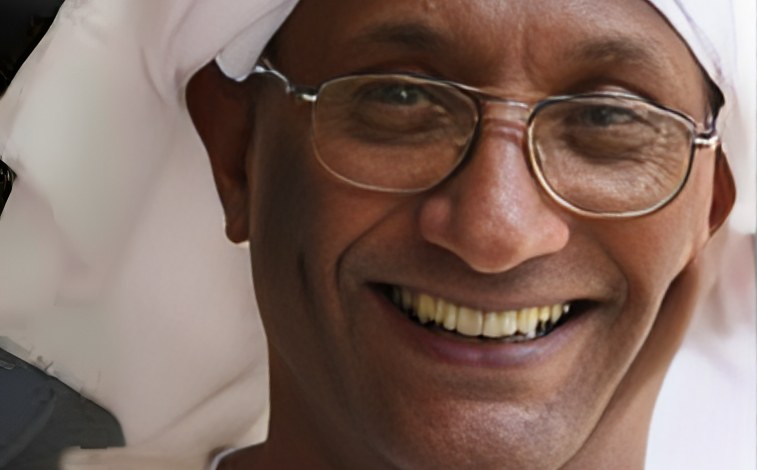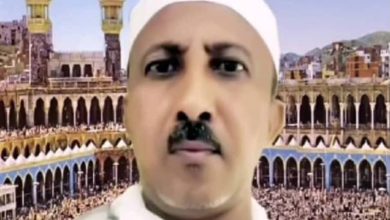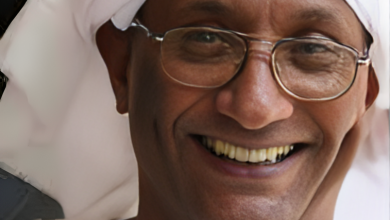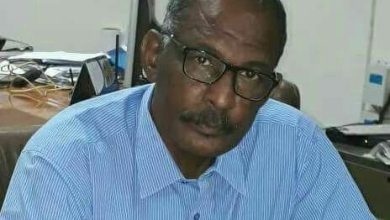The Pastoral Mind Came Personally and the Champion of Intellectual Tayammum (2-2)

By Abdullah Ali Ibrahim
Al-Nour Hamad was among those who traveled to Nairobi in mid-February to form a parallel government to the “Port Sudan government” in areas controlled by the Rapid Support Forces (RSF). Hamad’s motive for supporting this anticipated RSF-aligned government was to rescue the December 2018 revolution from the evils of the remnants of the former regime, who ignited the war to crush the revolution and reclaim their power. Outwardly, Hamad declared that this parallel government was the only remaining opportunity to wrest the initiative from the Islamists. This suggests he had grown deeply disillusioned with Taqaddum (the political movement), seeing the civilian resistance to the war and the Islamists as toothless and lacking any real strength. In his view, the civilian resistance would remain a mere dream if its only tools were chanting and pleading in the face of the ruthless and dynamic force of the Islamists. Hamad argued that the political stage had changed—there was no longer room to speak of the peacefulness of the revolution. Instead, he advocated for a new path where the defenseless civilian opposition would unite with a military force, namely the RSF, just as the army and the remnants of the former regime had done.
Al-Nour Hamad had previously rejected the idea of overthrowing the Salvation Government (under former President Omar al-Bashir) through a revolution. In his book on the pastoral mind, serialized around 2016, he argued that the Salvation Government—whose rule had corroded the modern state due to the influence of the pastoral mind—would inevitably collapse. He believed that attempts to extend its lifespan through tribal militias, the Janjaweed (before they were formalized as the RSF under the 2017 law), would ultimately fail because those militias posed a greater threat to the state’s unity than the armed movements on the margins that the regime sought to crush. However, Hamad was wary of the regime falling through a revolution, fearing that such a scenario would lead to a “reproduction of the pastoral mind.”
A hasty revolution, driven by a sense of injustice at the pastoral nature of the Salvation Government, would blind revolutionaries to the complexities of change. Hamad argued that it was precisely this rush for change that led the Islamists to stage their 1989 coup, motivated by a crude, religiously driven pastoral impulse. According to him, both religious and secular uprisings could embody the same impulsive, pastoral character. Thus, a rushed revolution was nothing more than a pastoral outburst.
Islamists and the State
Hamad rejected the idea of revolution as a solution to the Salvation Government even in the final hours of its rule. In an interview with Al-Tayar newspaper (October 24, 2018)—just two months before the December 2018 revolution—he dismissed the possibility of a popular uprising against the regime, calling such a prospect “a frightening option.” He argued that excluding Islamists from any future political arrangement was not only wrong but impossible. He reasoned that the Islamists were intertwined with the very fabric of the state, and removing them would be akin to dismantling the state itself. Hamad advocated for a “synthetic solution” that would bring both the Islamists and the opposition into a new political framework. Without such an approach, he warned, the country would descend into chaos, leading to the collapse of the state.
It’s reasonable for someone to change their mind in light of new developments—revolutions have that effect. However, consistency demands that Hamad not attempt to rescue a revolution that he himself had previously characterized as a “full-fledged pastoral uprising” by aligning with a force that itself represents a pastoral uprising. Trying to salvage a revolution that Hamad once labeled a “frightening option” amounts to gambling with the unknown.
In this context, Hamad recommended that the opposition challenge the National Congress Party (NCP) in the elections scheduled for 2020. He pointed to changes that made revolution unlikely, including the weakening of the middle class, which had traditionally led organized revolutionary efforts. Meanwhile, the regime had consolidated its position through religious discourse and succeeded to a significant extent in diminishing the likelihood of an uprising. Hamad was blunt about the opposition’s weaknesses, arguing that it had failed to capitalize on public grievances because it lacked genuine mass support. In his view, the opposition had become little more than an empty slogan that the public had abandoned in favor of securing their livelihoods under the regime’s grip.
The NCP had embedded itself deeply into the social fabric, planting local committees in every neighborhood and village, maintaining daily contact with people’s needs, and possessing detailed information about the population. Even if the regime offered nothing in return, it held a tight grip on society through a well-entrenched administrative and security apparatus. It also controlled a powerful media machine and religious discourse that kept the public under its influence. Compared to this, the opposition’s efforts amounted to mere unproductive waiting—little more than a banner with a few empty words.
“It’s War”
Al-Nour Hamad has never spoken positively about the pastoral mind. He argues that life in pastoral communities necessitates military strength, combat skills, and the ability to seize and defend land holdings. The pastoral mind views the wealth of others as fair game unless there is an existing alliance or shared boundary. In contrast, modern society extends justice to all. For the pastoral mind, looting and conquest are especially appealing when neighboring a more advanced civilization that appears militarily weak. During its war, the RSF treated property seizures as an open-day raid, which became a central issue in the Jeddah Peace Agreement (May 2023). However, Hamad excused these violations under the logic that “it’s war, and to the victor go the spoils.” He famously stated that the demand for the RSF to vacate civilian homes was naive, even impossible. He argued that relying on reason rather than emotion was more appropriate in such cases. Hamad claimed that RSF’s occupation of homes was expected in a war since “war is not governed by ethics.” Therefore, wise people work to prevent war because once it begins, its evils are inevitable.
Hamad acknowledged that the RSF committed violations during the war with the Sudanese Armed Forces, which should be subject to accountability. However, he argued that the military was more to blame for starting the war. According to him, the real responsibility lies with those who ignite conflicts rather than those who commit violations under the chaos of war. Once war begins, it creates conditions where the rule of law collapses and the state dissolves.
The Concept of the Mind and Violations
Hamad’s interpretation of the pastoral mind faltered when it came to RSF’s violations, which fit his own definition of that mind. He reduced the war to an exercise in pastoral domination, suggesting that the RSF’s actions were natural outcomes of war. He dismissed calls for the RSF to withdraw from occupied homes unless compelled by force, which contradicts international humanitarian law. Hamad seemed indifferent to the Geneva Convention’s protections for civilians during wartime (August 12, 1949). In the absence of such legal considerations, Hamad effectively framed Sudan’s war as a pastoral uprising under a modern banner, reinforcing his claim that the pastoral mind has plagued Sudan since the Arabs’ arrival—an affliction from which Sudan has yet to escape.
Hamad’s handshake with RSF’s second-in-command, Abdul Rahim Dagalo, sparked humorous commentary on social media. Some joked that Dagalo asked Hamad the RSF’s trademark question to prisoners: “How did you find us?”—a question meant to elicit praise for their humane treatment.



